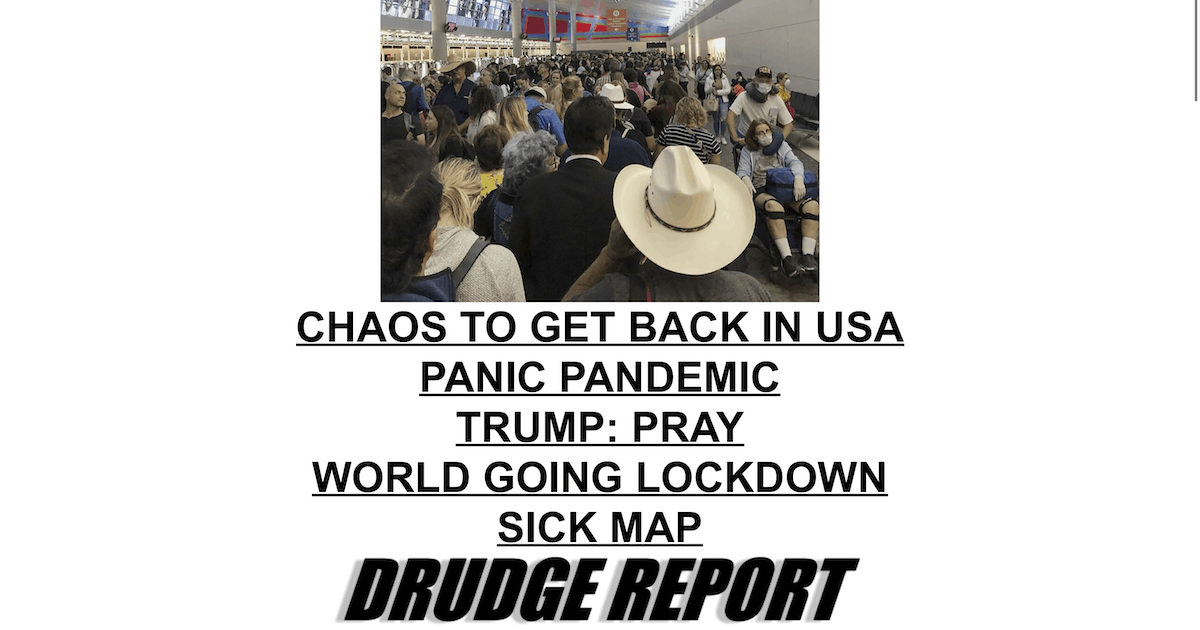You’ve got to be careful reading the news at times like this. Media outlets have a vested interest in getting us to visit their sites, and they know the kind of words that will draw us. Today’s keywords seem to be “panic” and “chaos.” To read the news you’d think there has been panic at every grocery store and chaos at every airport.
There’s no doubt that there have been some moments of poor behavior as people have realized they may not be able to easily purchase some of life’s necessities. Hence, “Panic As Shoppers Fight Over Toilet Paper!” There’s no doubt there have been moments of confusion as airport lineups have swelled in response to stricter policies—“Chaos at America’s Airports!” But it seems to me—and I have been following the news very closely—that such moments are relatively few and far between. When measured across America, or North America, or the Western world, we see very little true panic and very little true chaos. To the contrary, the great majority of people are acting in measured and responsible ways.
One thing we need to carefully guard against at a time of uncertainty is the irresponsible use of hyperbole. Just because people are behaving in different ways, does not mean they are behaving in panicked ways. Just because things are not normal, does not mean they are chaotic. Fifty people queuing to get into Costco may be surprising and even alarming, but, as long as those people are waiting their turn calmly, it is not panic (“sudden uncontrollable fear or anxiety, often causing wildly unthinking behavior”). People responding to government advisories by heading home from overseas and flooding O’Hare airport’s customs hall does not constitute chaos (“complete disorder and confusion”). Preparation is not panic and confusion is not chaos.
The problem is that we are the problem. You and I respond to the media headlines that proclaim panic and chaos. They draw our eyes, so they gain our clicks. Not only that, but we add to the problem by looking for an empty shelf in the grocery store, Instagramming it, and describing it as “panic,” even when many other nearby shelves are full, and even when there is a whole truckload of food waiting at the unloading dock. It’s the people who meet five-hour lineups at the airport who snap the photos of the “chaos,” not the people who land at another airport and breeze right through. Be responsible in the news you read and the stories you share.
There can be a cost to all this hyperbole: If everything is panic, nothing is panic, and if everything is chaos, then nothing is chaos. There may be times ahead when chaos comes and panic spreads. I’d suggest we reserve such strong words for such terrible occasions. Unfortunately, we may need them in the future—so we’d best hold on to them for such a time.
If you believe there is panic and chaos and are determined to find evidence of it, you’ll undoubtedly find it. But I hope you’ll be even more diligent to look for calmness and order, because I think you’ll find these in much greater measure. There’s a lot of uncertainty about the days ahead, though it seems likely that they will be difficult and trying at times. It will help us to live them well and get through them best if we continue to describe them accurately and realistically, not through the false lens of hyperbole.










